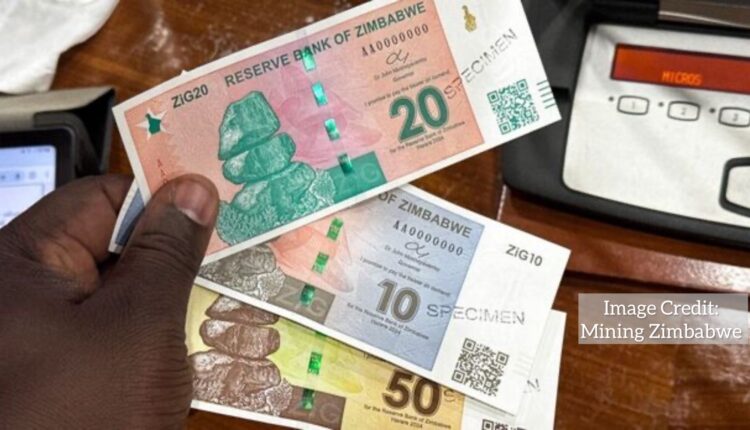The International Monetary Fund (IMF) has expressed cautious support for Zimbabwe’s new gold-backed currency, the Zimbabwe Gold (ZiG), while emphasizing that the currency alone cannot resolve the country’s longstanding economic challenges. Introduced on April 8, 2024, the ZiG is backed by gold and foreign currency reserves and was established to replace the heavily depreciated Zimbabwe dollar. The government claims the ZiG is underpinned by about US$629 million in reserves, including gold and other precious minerals. This new currency aims to restore monetary stability in a country that has struggled with hyperinflation, currency collapse, and lack of public confidence in the financial system for nearly two decades.
The IMF described the introduction of the ZiG as an important step in Zimbabwe’s ongoing efforts to stabilize its economy. It welcomed the currency as part of a broader reform package that includes fiscal consolidation, exchange rate unification, and strengthening of central bank independence. However, the IMF was clear in its message that the success of the ZiG will depend heavily on consistent implementation of sound macroeconomic policies and structural reforms. IMF Africa Department Director Abebe Selassie noted that the exchange rate is often a symptom of deeper issues such as inflation and fiscal mismanagement. Without addressing these root causes, he warned, the ZiG may not achieve its intended goals.
Following its launch, the ZiG showed some initial signs of stabilizing the exchange rate, and inflation pressures have slightly eased. Zimbabwe’s Reserve Bank raised interest rates to 20 percent and implemented measures to restrict parallel market activity. The central bank also began publishing the ZiG/USD exchange rate daily and introduced legal requirements for businesses to pay part of their taxes in ZiG. Despite these actions, public adoption of the currency remains low. Reports indicate that only about 20 percent of local transactions are being conducted in ZiG, with the majority still using US dollars. This low uptake signals a persistent lack of confidence among Zimbabweans, many of whom have experienced repeated currency failures in the past.
The government, led by the ruling ZANU-PF party, has proposed making the ZiG the sole legal tender in the country, a move that would end the use of the US dollar earlier than the previously stated 2030 timeline. This proposal has raised concerns among economists and international observers. The IMF has expressed reservations about such a transition, arguing that phasing out the US dollar prematurely could destabilize the economy if the ZiG has not yet earned the public’s trust and credibility. Businesses and retailers have also raised alarms, warning of store closures and operational challenges if forced to transact exclusively in ZiG.
While the gold backing gives the ZiG a veneer of stability, the IMF cautioned that this mechanism is only effective if the government refrains from printing money without corresponding reserves. In the past, Zimbabwe’s monetary authorities have used excessive money printing to finance budget deficits, contributing to hyperinflation and the collapse of previous currencies. The IMF has urged the government to prioritize transparency, limit central bank financing of deficits, and implement governance reforms to improve fiscal discipline. Additionally, the IMF insists that the government should focus on improving economic productivity, resolving its high debt burden, and negotiating debt relief from international creditors.
The IMF is scheduled to send a mission team to Zimbabwe in June 2024 for its annual Article IV consultation. During this visit, IMF officials will assess the implementation of the new currency system, evaluate inflation and exchange rate dynamics, and review broader macroeconomic conditions. The team will also examine whether the ZiG continues to be backed by verifiable reserves and whether the government is adhering to commitments to avoid inflationary financing.
In summary, while the IMF recognizes the introduction of the ZiG as a potentially positive development, it maintains that sustainable economic recovery will require more than a new currency. Success depends on restoring public trust, enforcing fiscal discipline, enhancing monetary transparency, and implementing long-term structural reforms. The ZiG may be a step in the right direction, but on its own, it cannot fix the deep-rooted economic problems that have plagued Zimbabwe for years.
Read Also: African Union Agency Rejects Fitch’s Downgrade Of Afreximbank








